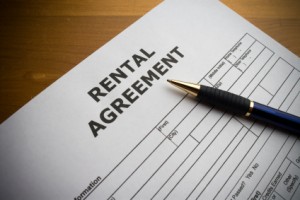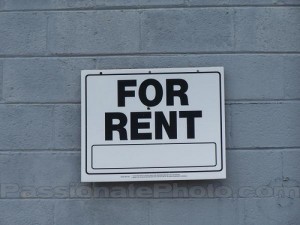Posted by Teresa on October 31, 2011 under Fair Housing Act, Landlord Tips, Marketing for Landlords, Screening and Background Checks | 
 If you’re landlord who has just closed on your first rental property, you may be wondering if this is a good time of year to find good tenants. After all, Thanksgiving is a few weeks away, and that means the winter holidays can’t be far behind. We often hear new landlords ask, “Do people move this time of year?” or, “Will my rental property be sitting vacant until after the New Year?”
If you’re landlord who has just closed on your first rental property, you may be wondering if this is a good time of year to find good tenants. After all, Thanksgiving is a few weeks away, and that means the winter holidays can’t be far behind. We often hear new landlords ask, “Do people move this time of year?” or, “Will my rental property be sitting vacant until after the New Year?”
Of course, every situation is different, but the short answers to the above questions are “yes” and “not necessarily.” Tenants move at all times of the year, and depending on their circumstances, plenty of people move just before or after Thanksgiving, or the week of Christmas, or even on New Year’s Eve.
If you have a rental property ready for your first tenant, you should create a plan for marketing the property right away. Here are a few tips for filling a vacant rental property fast, no matter what time of year it is:
Remember you may not screen out any tenants on the basis of race, color, religion, marital or family status, gender, or disability. New landlords should become very familiar with the Fair Housing Act and all state and local rental ordinances.
Define your best-fit tenant: Who do you want living in your rental unit (staying within the FHA, of course)? Is it a high-end property with a higher rent, or is it middle- or low-income? Will you seek out Section 8 tenants? Is it perfect for students? What is the income requirement to rent your property? Who can afford it?
Post plenty of signs: Place “Now Leasing” or “For Rent” signs in the windows and on the lawn. If possible, put “For Rent” directional signs at intersections, pointing the way to your rental property. Your signs should include the number of bedrooms and bathrooms and your phone number, along with a website where prospective tenants can view photos.
Put up a few fliers: Post fliers where your best-fit tenant will see them. This could be a coffee shop in the neighborhood, a Laundromat, a grocery store, or a community center bulletin board. Include a thorough, well-written description of the unit, and provide tear-off tabs with your contact info. Highlight any features that will sell the tenant on living there. Is it bright and sunny? Are there details like a fireplace or hardwood floors? A patio? A view? Close to trails, the grocery store or library?
Advertise: CraigsList.org is probably the most popular rental advertising site, although you can also post on Rentals.com, ForRent.com and ApartmentFinder.com. The more you advertise, the more exposure you’ll get and the faster you can fill the unit. Write a good ad that appeals to your best-fit tenant.
Incentivize: When you get closer to the holidays, you may find it tougher to get prospective tenants to agree to move. You can always offer an incentive, such as half off the first month’s rent, waiving the application fee, or offering an appliance upgrade if they sign a one-year lease before Thanksgiving.
Pre-screen tenants: Don’t get so antsy about filling the rental unit that you skip the tenant screening process. Background checks and tenant credit checks are vital to starting the landlord-tenant relationship off well. Protect yourself, your property and any other tenants you may have by properly screening each prospective tenant.
Posted by Teresa on October 19, 2011 under Landlord Tips | 
 The landlord-tenant relationship is a unique one. While your tenants are essentially your customers, the dynamic is quite different than in a typical retailer-customer situation. But as with any relationship, communication is the key to a successful landlord-tenant relationship.
The landlord-tenant relationship is a unique one. While your tenants are essentially your customers, the dynamic is quite different than in a typical retailer-customer situation. But as with any relationship, communication is the key to a successful landlord-tenant relationship.
Experienced landlords with successful rental property businesses know a few tricks and tips. Here, we’ve compiled a list of 8 tips to improve landlord-tenant communication, from real landlords.
- Don’t hesitate to over communicate: More is usually better than less when it comes to communication. Provide checklists, notices, friendly tips and regulations for tenants, so everyone is clear on your expectations.
- Don’t make assumptions: If you’re wondering about what’s going on with a tenant as it relates to your rental property, don’t assume you already know the answer. Simply ask.
- Respect boundaries: Even in an attempt to be a good communicator, you can’t call tenants at all hours, expect them to allow you in their unit without notice, or stop them on their way to work to discuss an issue. Be respectful of their time and space. And by all means, stay out of the tenant’s personal life, unless it affects your rental property, the lease or any other legal obligations.
- Keep the lines of communication open: Let tenants know that you are always willing to discuss a problem or answer a question—and back up your word with your actions.
- Ask each tenant about preferred means of communication: It might require a little more effort on your end, but to maintain a high level of communication, you need to reach tenants in the manner they prefer. For some, that’s a phone call. For others, it’s a text. Still others respond best to e-mail. For legal notices, U.S. postal mail is usually required, and would not be subject to a tenant’s preferences.
- Put it in writing: Don’t agree to anything without a written agreement. Allowing an extra parking spot, a kitten, or a wall-mounted flat-screen TV is up to you, but don’t let it happen with just a verbal agreement. Most people would be hard-pressed to later recall what the agreement was, and they usually don’t stand up in court.
- Clarify: If you’re unclear about something you’re hearing from a tenant, say so. Communicate what you heard and ask if that is what they meant.
- Listen: This is the most important of the tips for improving communication. Poor listening skills can kill a landlord-tenant relationship. Listening is challenging in some situations, but with practice, anyone can learn to avoid interrupting when someone is speaking, show interest through active listening and provide feedback.
Posted by Teresa on October 16, 2011 under Fair Housing Act, Tenant Credit Checks, Tenant Screening & Background Checks | 
 The rental market is going strong in most areas of the country, as more folks are renting instead of buying. While many landlords are enjoying high vacancy rates, they still need to be cautious; the economy has really hurt the credit scores and bill-paying ability of millions of Americans.
The rental market is going strong in most areas of the country, as more folks are renting instead of buying. While many landlords are enjoying high vacancy rates, they still need to be cautious; the economy has really hurt the credit scores and bill-paying ability of millions of Americans.
Every landlord has a different standard for accepting new tenants, but the importance of conducting thorough credit checks and tenant background checks is clear. This is the one area that experienced landlords will tell you not to skimp on, because if you do, you will more than likely regret it!
Tenant credit checks and background screening doesn’t take long, and can be inexpensive. Most landlords pass the fee on to the prospective tenant, and most tenants are accustomed to paying the fee. If you have an applicant who has a problem with paying the fee or signing the authorization to conduct a background screening, then you probably don’t want them as a tenant, do you?
The screening process begins with the lease application, where you may ask questions about the applicant’s address history, work history and credit history, and obtain contact information for previous landlords and personal references. You may ask if the applicant has ever broken a lease, if they paid rent on time, why they are moving now, and about their income.
You may not ask a potential tenant about race, religion, family status, disability, or any other information that might indicate a breach of the Fair Housing Act.
Be sure to obtain the applicant’s signature on a separate notice that informs him or her that you will be running a credit check and background screening, based on their name, date of birth and Social Security Number.
Most experienced landlords will also phone references and previous landlords. Be careful how you phrase your conversation, because too many tenant applicants will provide the phone numbers of friends who have agreed to pose as a landlord or employer. Simply identify yourself and ask the person on the other line, “How do you know Joe?” The correct answer may be “I’m his landlord,” or “He used to work for me.” If Joe gave you Tom’s name as a previous landlord, and Tom answers, “Joe and I are on a bowling team together,” you may have spotted an inconsistency in Joe’s story. Be on the lookout for more of them!
Finally, you should run a thorough tenant screening credit check to find out how the applicant pays bills, if they’ve filed for bankruptcy, and what their credit score is. A criminal background screening will reveal whether or not you have a convicted felon or sex offender applying to live in your rental property.
Don’t forget to trust your gut when screening tenants. You don’t have to give a reason for rejecting a tenant in most areas (check your state and local laws)—but do be careful and apply the same criteria to every applicant, or you could be accused of discrimination. You can’t reject an applicant solely for the color of their skin, but you can reject one because their credit score did not meet your minimum requirements—along with the bad feeling they gave you when you met them!
Posted by Teresa on October 11, 2011 under Housing Trends, Rental Market | 
 A new survey focusing on baby boomers and their home buying plans was released today by Coldwell Banker Real Estate. The survey of 1,300 agents and brokers finds that 87% of respondents have clients who already own or are looking to buy investment property. About 22% of agents responding said that at least half of their baby boomer clients fall into this category.
A new survey focusing on baby boomers and their home buying plans was released today by Coldwell Banker Real Estate. The survey of 1,300 agents and brokers finds that 87% of respondents have clients who already own or are looking to buy investment property. About 22% of agents responding said that at least half of their baby boomer clients fall into this category.
Jim Gillespie, CEO of Coldwell Banker Real Estate, said that baby boomers drive the U.S. economy; while they are a diverse group and cannot be generalized, their attitudes towards real estate can be telling. Right now, the economy is delaying boomers’ decisions to sell their existing homes, whether to downsize or relocate.
Coldwell Banker Real Estate’s data indicates that the boomers who can afford to are looking for a retirement home or a second home for investment, and many see now as the time to take advantage of lower home prices.
Additional survey findings:
- Younger baby boomers (ages 47 – 55) are more interested in purchasing a second home than older baby boomers (ages 56 – 64), by a margin of 34% to 22%.
- 31% of younger baby boomers are looking to sell an existing home and buy a larger home, compared to just 6% of the older group.
- Downsizing is more appealing to older (80%) than younger (52%) boomers. For the majority of older boomers, the reason for downsizing is not to save money, but to simplify their lives.
Interest rates are historically low, so younger baby boomers are actively seeking income streams for retirement. Perhaps they will be joining the ranks of the nation’s landlords, trading fixed annuities and bank CDs for property management guides and a set of handyman tools.
Posted by Teresa on October 7, 2011 under Landlord Paperwork and Forms, Lease and Rental Agreements | 
 When leases are about to expire, landlords need to decide whether or not to renew and re-sign with a tenant, or notify them there will be no lease renewal. It’s important to know the terms of your lease agreement, obviously, but most require a 60- or 30-day notice from either party if a lease will not be renewed. Remember, it’s up to the landlord whether or not to offer a new lease and keep a tenant. Of course, tenants who wish to move have the option to end the relationship at the end of the lease, but if the landlord decides a tenant is out, there’s not much a tenant can do.
When leases are about to expire, landlords need to decide whether or not to renew and re-sign with a tenant, or notify them there will be no lease renewal. It’s important to know the terms of your lease agreement, obviously, but most require a 60- or 30-day notice from either party if a lease will not be renewed. Remember, it’s up to the landlord whether or not to offer a new lease and keep a tenant. Of course, tenants who wish to move have the option to end the relationship at the end of the lease, but if the landlord decides a tenant is out, there’s not much a tenant can do.
Landlords need to know in advance if a tenant plans to stay or move. It’s not a bad idea to send the tenant a notice, ask if they’re staying or leaving, and have them check a box: I’m interested in renewing; or I’m moving out. Sending a notice ahead of time is also a great way to remind tenants that any security deposit paid is just that—and that the last month’s rent will be due as usual, with the security deposit covered separately.
If the tenant is paying rent on time and abiding by the terms of his or her lease, it’s to the landlord’s advantage to keep the tenant in place, avoiding the expenses and time associated with finding a replacement. Some landlords who want to keep their tenants send a friendly letter notifying them that the lease is up for renewal, and offering a discount on the standard annual rent increase because they are “preferred tenants.” Others put the new rent at the standard rate and offer a $50 gift card, new light fixtures, or some other perk for renewing.
The strong rental market means landlords can be a bit choosier. So if a lease renewal date is coming up and a tenant no longer fits your requirements, you simply need to notify him or her that you will not be renewing the lease. Give at least 30 days’ notice, or more if you lease or local laws require it.
3 Reasons to Let a Bad Tenant Go:
- Late rent: Even if a tenant pays the rent every month, if they pay late every month, it’s a hassle. Get someone in who will pay every month, on time.
- Breaking terms of lease: Every item in the lease was agreed to by your tenant when they signed it. If you have a tenant who is smoking in a non-smoking unit, or piling garbage around the dumpster instead of in it, or taking up three parking spots instead of one, you may decide that you no longer wish to put up with the headaches a tenant like this can cause.
- High maintenance: Certainly, legitimate complaints about repairs and maintenance are your responsibility as a landlord. But if you have a tenant who complains about a light bulb burning out, or the lack of air conditioning in a unit that never had it, or any number of other insignificant non-issues, you have the right to not renew the lease.
Protect your rental property and assets through tenant background checks. Proper tenant screening will ensure you are leasing to the best possible tenants.
Posted by Teresa on October 4, 2011 under Landlord Tips | 
 Laminate flooring can be easy to care for, long lasting and practically indestructible—which should make it a great choice for rental properties. However, landlords who are experienced in dealing with laminate flooring have differing opinions. If you’re considering using laminate flooring in your rentals, read on for some pros and cons, provided by actual landlords.
Laminate flooring can be easy to care for, long lasting and practically indestructible—which should make it a great choice for rental properties. However, landlords who are experienced in dealing with laminate flooring have differing opinions. If you’re considering using laminate flooring in your rentals, read on for some pros and cons, provided by actual landlords.
First, the Cons:
- Laminate floors are good in moist areas, but won’t tolerate standing water, or you’ll soon have separation in the seams.
- Laminate flooring can be fairly expensive.
- The floors can tear when moving heavy items, such as refrigerators.
- Cheaper level flooring will show wear in heavy traffic areas.
- It cannot be refinished or sanded.
- The surface can be slippery, with a risk of falling tenants or children.
- High traffic homes, like rentals, may not be the best fit for laminate flooring products.
Now for the Pros:
- Laminate floors look great.
- They can attract a higher level of tenants.
- Laminate costs less than hardwood.
- They are easy to install.
- The variety of wood species available is higher than ever.
- Some are warranted for 20 years or more.
- Laminate floors are easy to maintain.
- They don’t buckle, stain or warp.
- The finish is often scratch-resistant.
- Laminate often holds up better than carpet.
So there you have it. Some landlords have installed laminate successfully, while others say tile, vinyl plank flooring or inexpensive carpet work better for their rentals.
Posted by Teresa on September 23, 2011 under Landlord Tips | 
 It seems like more people are getting into property management. The shift from a home-buying boom to a strong rental market could be one big reason. Have you seen the seminars popping up that claim to teach real estate agents how to manage property in one 3-hour session?
It seems like more people are getting into property management. The shift from a home-buying boom to a strong rental market could be one big reason. Have you seen the seminars popping up that claim to teach real estate agents how to manage property in one 3-hour session?
Property management takes a strong set of skills and expertise. Your property manager is supposed to enhance your business and keep you safe—not be another potential liability that can cause your business harm.
Here are three things to watch out for and consider if you’re planning on hiring a property manager:
- Avoid hiring a friend or family member. Business and friendship seldom mix successfully. If your friend who’s been selling houses just added property management to his list of services, do you really want to be his guinea pig? Does your cousin really have the guts to evict tenants and handle rent disputes? And are either of them educated about rental and tenant laws?
- Realize that you need to manage the property manager. It would be nice if your PM took care of your rental business so well that you didn’t have to do anything but count your money, but you will still need to follow up on expenses, repairs, rent collection and vacancies. A good PM will provide appropriate reports on a regular basis, but do your own follow-up just to be sure.
- Find a PM who really cares about your properties and your business. The higher cost of an effective property manager could be well worth it. Interview several to find one you who knows the local market, the local and state rental laws and who agrees with your management philosophy. Ask for and check references. Get examples of their reports. Check out their insurance and bonding status.
As the rental market heats up, more people will be adding property management to their list of services. Be picky and hire one who is knowledgeable and experienced.
Posted by Teresa on September 21, 2011 under Landlord Paperwork and Forms, Lease and Rental Agreements | 
 As a landlord, do you keep track of tenant lease renewal dates? It’s important to do so, for a few reasons.
As a landlord, do you keep track of tenant lease renewal dates? It’s important to do so, for a few reasons.
If you’re on a one-year lease schedule, set reminders to contact tenants prior to the lease expiration to thank them for leasing your property and inform them it will soon be time to sign a new lease. If you will be raising the rent, now is the time to inform your tenant. You may wish to provide a perk such as an appliance upgrade or new carpet to entice them to renew at the higher rent.
At lease signing, have your tenant fill out an updated information form, so you can be sure to have current employment information, emergency contacts, current occupants and vehicle license numbers:
- You’ll want the employment information in case your tenant vacates the unit and owes you rent. If you’re forced to go to court to collect, you’ll want to know where you can garnish the tenant’s wages, if it comes to that.
- Personal and emergency contacts are important, not only in case of an actual emergency, but again, if the tenant breaks the lease and owes you rent, you’ll have a place to start looking for him or her.
- Vehicle license information is vital to keeping unauthorized or unknown vehicles off your property.
- Asking for current occupants are a great way to discover if there are unauthorized residents staying in your rental property. If there are “guests” over age 18, you’ll want to point out the lease clause that covers your guest policy (such as limiting guests to two consecutive weeks in any six month period) and require lease applications and tenant background checks from anyone living in your rental unit who is not on the lease. Of course, if the new tenant is permanent, you’ll need a to draw up a new lease that includes his or her name.
Remind tenants that they must provide written notice if they intend to move out at the end of the lease. Ask for an exact date they will be vacating. However, don’t promise the unit to a new tenant until you are absolutely sure that the old tenant is moving out.
Posted by Teresa on September 17, 2011 under Lease and Rental Agreements | 

Dealing with tenants who want to break a lease early doesn’t have to be unpleasant. Experienced landlords often offer tenants a buy-out agreement as a way to compensate them for the trouble of a breaking the lease.
You can set the conditions of the buyout according to your needs. For example, you can release your tenant from the lease and any remaining rent obligations, in exchange for a fee. While the fee does not affect the tenant’s obligations for any property damage (any security deposit paid by the tenant is a separate matter), it can compensate you for your time and trouble in finding a replacement tenant, plus your advertising expenses and possible loss of rental income while undergoing the process.
Be sure that the terms and conditions of the buy-out agreement are clearly spelled out in a document that will be signed by you and all tenants listed on the original lease agreement. Include the dollar amount of the fee, which might equal one, two or three months’ rent, along with the date the property will be vacated, and other details concerning property inspection, key return, security deposit, and forwarding address information. It’s a good idea to have all of your lease and agreement documents reviewed by a landlord/tenant attorney.
The amount of the fee should cover the loss of rent for the time you expect it will take to re-lease the property, advertising expenses and any other costs related to the tenant terminating the lease.
Legal disclaimer:
The contents of this article are intended for general information purposes only, and should not be relied upon as a substitute for obtaining legal advice applicable to your situation.
Posted by Teresa on September 13, 2011 under Housing Trends, Rental Market | 
 According to the U.S. Census Bureau, there has been a big jump from 2007 in the number of individuals and families doubling up in housing. The definition of “doubled-up” households are those that include at least one person over age 18 who is not in school, not the householder, and not a spouse or partner of the householder.
According to the U.S. Census Bureau, there has been a big jump from 2007 in the number of individuals and families doubling up in housing. The definition of “doubled-up” households are those that include at least one person over age 18 who is not in school, not the householder, and not a spouse or partner of the householder.
The Census Bureau says 69.2 million, or 30%, of adults were doubled-up in 2010, compared to 61.7 million adults, or 27.7% in 2007. Total American households who have doubled up due to unemployment or underemployment stands at 18.3%.
Much of the increase comes from people aged 25 – 34, living with their parents. That number increased from 4.7 million before the recession to 5.9 million (14.2% of the age group) in 2010.
The study was done as part of the Census Bureau’s wider report on income, poverty and health insurance. The report shows that household incomes dropped sharply last year. Since 2007, they have fallen 6.4%. Not surprisingly, the number of people living in poverty rose sharply, up for the fourth year in a row to 46.2 million people, or 15.1%.
If counted separately, some 45% of the young adults who live with their parents would fall below the poverty threshold. Because an entire household’s income is counted when determining poverty status, the group has an official poverty rate of only 8.4%.
What does the Census Bureau data mean for landlords?
- Fewer households mean lower demand for rental housing.
- Americans have less income to spend on housing and other necessities.
- Fewer home sales will continue to drag the housing market down.
- Once the economy starts to improve, many of the families and adult children will move out on their own, spurring a strong demand for housing.
Now, if only the economy would start to improve!
 If you’re landlord who has just closed on your first rental property, you may be wondering if this is a good time of year to find good tenants. After all, Thanksgiving is a few weeks away, and that means the winter holidays can’t be far behind. We often hear new landlords ask, “Do people move this time of year?” or, “Will my rental property be sitting vacant until after the New Year?”
If you’re landlord who has just closed on your first rental property, you may be wondering if this is a good time of year to find good tenants. After all, Thanksgiving is a few weeks away, and that means the winter holidays can’t be far behind. We often hear new landlords ask, “Do people move this time of year?” or, “Will my rental property be sitting vacant until after the New Year?”







